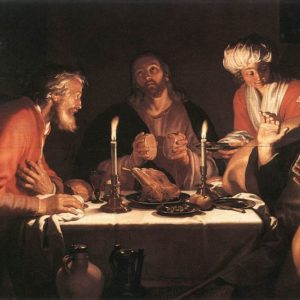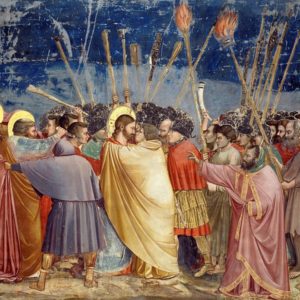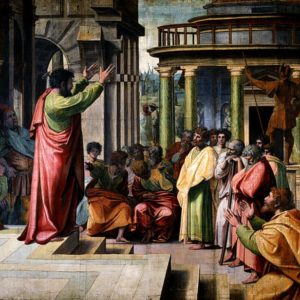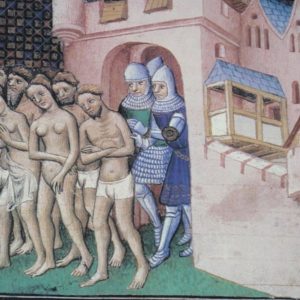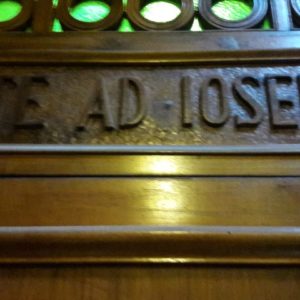Sometimes, when we talk about Christianity, we present it as a great deal. “My yoke is easy, and my burden is light,” Jesus says (Matthew 11:30). But other times, it sounds like Christianity is costly. Remember that Jesus also says “he who does not take his cross and follow me is not worthy of me” (Matthew 10:38). So which view is right? Both of them. Here’s are two parables that Jesus gives that explain that apparent contradiction.
Tag: apologetics
The Controversial Catholic Prayer that You Should be Praying Daily
The daily morning offering, a Catholic spiritual tradition we can all make use of, serves as a reminder of the areas of Christian disunity, and serves as an unintentional advertisement for the need for prayer.
The Catholic Mass in Scripture, the Early Church, and Today
In Luke 24:13-35, the two disciples on the road to Emmaus have a surprise encounter with the risen Lord, Jesus Christ. There are basically four “stages” of communion in this encounter, and it’s the same four stages, in the same order, that we find in the earliest Christian worship, and that we see in the Mass today. So let’s look at each of the four stages, and then consider why it matters that they should all follow the same structure and pattern….
4 Things We Can Learn from the Apostle Judas
This Holy Week (and especially today, “Spy Wednesday”), it’s worth taking a closer look at the Apostle Judas Iscariot. Here are four things that we can learn from him.
About Those Noble Bereans…
It’s more than a little ironic that Protestants who believe that all doctrines need to be found in the 66 books of their Bible claim to be modelling themselves off of the Bereans (Acts 17:10-12), who neither had a 66-book canon nor a belief that all doctrines need to be found in the Scriptures. The Bereans are noble, but they’re not Protestant.
Three Christian Views on Excommunication (And Why Two of Them Are Wrong)
Within Christianity, there tend to be three major views of the place of excommunication: (1) We shouldn’t excommunicate anyone, because it’s not merciful. (2) We should excommunicate, because we want to purify the Church of the damned. (3) We should excommunicate, because it’s merciful to sinners. So which of these views is the one endorsed by Scripture?
Why Do We Suffer?
Why do we suffer? Pope St. John Paul II explores one of the hardest questions facing Christianity.
Why Must Catholic Clergy be Called by the Church?
The Catholic Church requires all aspiring priests and deacons to request ordination, and then to be called by their bishop. Why does she do that? Because it’s the Biblical model. And this explains where the women’s ordination movement, and the Protestant Reformation, have gone wrong.
St. Joseph and the Numinous
Why does the angel Gabriel tell Joseph not to “be afraid” to take Mary as his wife?
Water, Death, and Life
Water: it’s a sign of life, and a sign of death. And in Baptism, we celebrate both of these things. A guest post by Louis Masi of the Archdiocese of New York.

